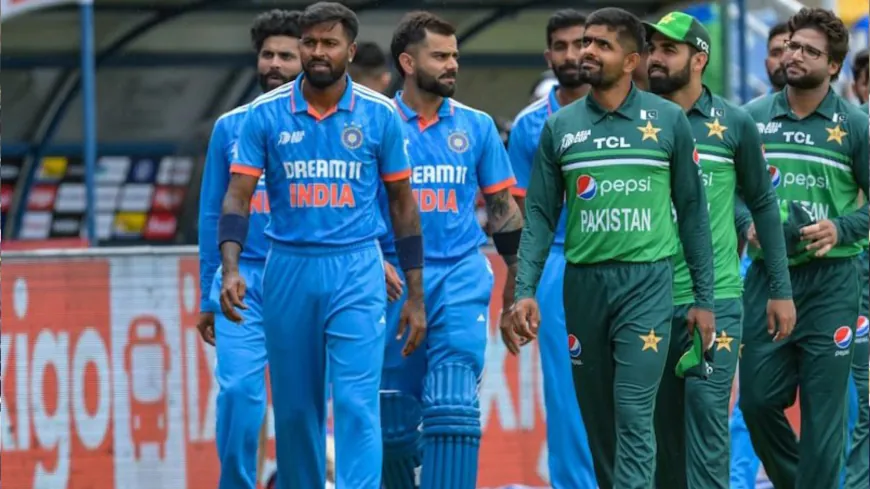India vs Pakistan Asia Cup 2025 Match Will Proceed Despite Loud Backlash
India vs Pakistan Asia Cup 2025 match on September 14 won't be cancelled despite public outcry and escalating tensions Sources confirm that it is a multi-nation event and India would suffer strategically and economically by skipping it

The highly anticipated India vs Pakistan match in the Asia Cup 2025 triggered a wave of accusation and emotional criticism nationwide but high-ranking sources have issued a clear word that the game on September 14 cannot be cancelled. Although relations between the two countries are tense following a recent horrific terrorist attack in Pahalgam in April that killed 26 innocent lives the match is not a bi-lateral one. It is within a multi-nation tournament and that makes a huge difference in the way the situation is being dealt with by the authorities.
Numerous individuals have turned to social media to show outrage at India playing Pakistan particularly in the wake of recent Pakistan-sponsored terrorist attacks. Others including retired military chiefs like Lieutenant General KJS Dhillon have gone so far as publicly calling for a boycott of all sporting relations with Pakistan. Former Indian cricket captain and former president of BCCI Sourav Ganguly however has stated that terrorism needs to be condemned while sports have to go on. These two opposing opinions are an example of the highly emotional and intricate situation.
Though the Sports Ministry has stated that no form of bilateral sports relationship with Pakistan is currently possible it has also made it clear that this ban does not exist for multi-nation competitions such as the Asia Cup. According to worldwide sporting standards particularly the Olympic Charter political discrimination in sporting tournaments is not allowed. As India is going to bid for the 2036 Olympics it is essential for the country to maintain this international sporting standard. Cricket has become a part of the Olympic movement already and it is going to debut at the Olympics in 2028 in the T20 format. Hence, it becomes even more necessary for India to uphold the standards of the international sporting organizations.
The match between India and Pakistan is part of a larger tournament that is being organised by the Asian Cricket Council and not by the ICC. The ACC is currently led by Mohsin Naqvi who is also the chairman of the Pakistan Cricket Board. India and Pakistan are both grouped together for this tournament and will most likely face each other once in the group phase and potentially two additional times based on current performances. With crores being wagered on viewership of these matches, broadcasters such as Sony Network have heavily invested in the tournament. Sony has entered into an eight-year broadcasting agreement with the ACC valued at 170 million dollars and India-Pakistan games are considered to be the most lucrative ones in terms of television viewership and commercial rating.
If India forfeits or skips the game it would not only provide Pakistan a walkover but also throw the competitiveness of the tournament out of balance. Sources familiar with the BCCI have noted that providing Pakistan with such a benefit in a multi-nation tournament would be unjust and would damage the image of the tournament. Also if these games are not played the financial blow could be drastic not just for the broadcasters but also for the ACC and its 24 member nations many of them small cricketing nations relying on the income generated by large games like this one.
Now the Board of Control for Cricket in India or BCCI is not directly under the Sports Ministry's umbrella. This is due to the fact that the National Sports Governance Bill, which would authorize the ministry to put curbs on international participation, is pending in Parliament for approval. Once the bill is enacted, the BCCI will fall under the supervision of the Sports Ministry and the government could intervene and restrict such matches in the event of extraordinary conditions. But until then it remains the BCCI’s decision whether India plays Pakistan in multi-nation events or not.
The bill contains a provision for the ministry to impose reasonable restrictions on Indian teams or players in the cause of national security or in extraordinary situations. However, because the bill is yet to become an act it is not yet legally binding. That is why the ongoing match is not being obstructed by the government and the choice rests with the BCCI.
India and Pakistan have not played a bilateral cricket series since 2008 following the terror attacks in Mumbai. The terror attacks resulted in over 150 deaths and both governments have since then shunned direct bilateral sports contests in particular cricket. Nevertheless in international competitions such as the World Cup or Champions Trophy India and Pakistan have been regular opponents garnering enormous global interest and record-breaking television audiences.
Even with demands for a boycott the reality that this is a continental tournament with several teams means that isolating any single country is not easy. The Olympic Charter that directs most sports organisations frowns upon combining politics and sport and this makes it virtually impossible for a nation like India to selectively withhold its participation in such competitions while at the same time seeking to be a major player in international sport in the years ahead.
All eyes are now on how the BCCI tackles public pressure and political sensitivities and remains true to the grand sporting paradigm. The match ahead of us is not another cricket match but a reflection of issues at a higher plane involving diplomacy public sentiment and India's vision for the long term in international sport. Whether or not the fans will approve of the decision, the match between India and Pakistan on September 14 is virtually guaranteed to happen and millions will tune in.



 admin
admin